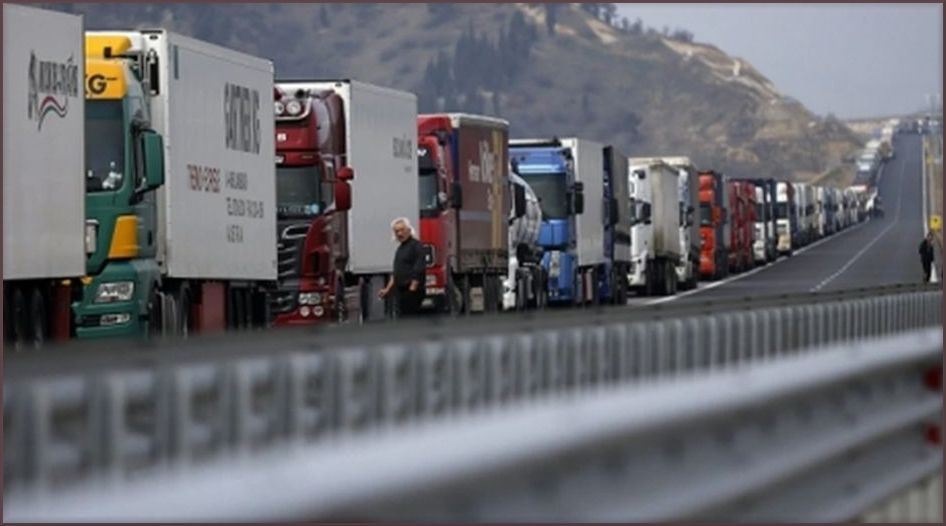According to Parliament, the Commission should also analyze the possible compensation mechanisms for these losses.
 Romania and Bulgaria would be entitled to compensation for the financial losses they suffered as a result of the “negative and unjustified” decision taken on the two countries’ accession to the Schengen area, taking into account the financial losses incurred since June 2011, according to the European Parliament’s resolution of July 12, 2023, on accession to the Schengen area, published today in the Official Journal of the EU.
Romania and Bulgaria would be entitled to compensation for the financial losses they suffered as a result of the “negative and unjustified” decision taken on the two countries’ accession to the Schengen area, taking into account the financial losses incurred since June 2011, according to the European Parliament’s resolution of July 12, 2023, on accession to the Schengen area, published today in the Official Journal of the EU.Resuming “Parliament calls on the Commission to estimate the financial losses, unrealized gains and environmental damage of Romania and Bulgaria, but also of the Union as a whole, as a result of Romania and Bulgaria not being members of the Schengen area from 2011; The Commission should analyze the possible compensation mechanisms for the financial losses suffered by Bulgaria and Romania as a result of the negative and unjustified decision taken on the accession of the two countries to the Schengen area, taking into account the financial losses incurred since June 2011 What are the losses from the non-acceptance of Romania, Bulgaria and Schengen? According to the Resolution, the two states have suffered collateral and irreparable damage, such as that caused by the increase in CO 2 emissions generated by the millions of vehicles waiting several hours each year at border controls.
At the same time, this stands in stark contrast to the Union’s climate neutrality goals.
“The high level of pollution caused by the thousands of vehicles queuing daily and waiting for several hours or even days to cross the borders between Hungary and Romania, Romania and Bulgaria and Bulgaria and Greece also poses a threat to the environment, as well as to the health of drivers, customs staff and people living in border-crossing areas; whereas evidence-based information has shown that 46,000 tons of CO2 are emitted annually as a result of the decision not to abolish internal border controls for Romania and Bulgaria,” the resolution said.
Parliament’s data also shows that the queues created by waiting trucks exceeded 25 km at Romania’s western border in 2022, while the waiting time for trucks crossing the borders between Schengen member states was between 10 and 30 minutes in 2021.
With many crossings reporting no delays.
Former Economy Minister Florin Spataru estimated that Romania loses 10 billion euros annually due to not being accepted into Schengen. What more can be done The Parliament also stresses the need to analyze the current and potential future possibilities of referring the case to the Court of Justice of the European Union.
The institution’s position comes in the context where, in October 2023, the Court of Justice of the European Union (CJEU) rejected as “manifestly inadmissible” the action for annulment filed by Romanian MEP Eugen Tomac against the EU Council regarding the decision
not to allow Romania into Schengen.
“Parliament regrets and underlines with great concern the fact that the negative decision on the accession of Romania and Bulgaria to the Schengen area is instrumentalized by anti-EU propaganda, including Russian propaganda, to the detriment of the EU’s foreign policy objectives; points out that this decision, even if not based on legally sound and enforceable criteria, undermines the EU’s ability to promote its values and good governance in countries outside the EU, including the acceding countries. The accession of Romania and Bulgaria to the Schengen area is essential because an expanded Schengen area without internal border controls will make the EU stronger. We call on all Member States to fulfill their obligation of loyal cooperation with Romania and Bulgaria regarding the accession of these two Member States to the Schengen area, in accordance with Article 4(3) of the TEU, and we note that no Member State would do so arbitrarily violating the rights of other Member States, including their legitimate rights to join the Schengen area once the criteria have been met,” the European Parliament resolution said.
Romania entered the Schengen area with air and sea borders on March 31, 2024, but no decision has yet been made on extending it with land borders.
The underlying reason for this is that Austria is holding the European Union hostage for internal party political reasons because they still follow the unanimity model.
This unintentionally undermines the unity of the European Union.
The rules on voting in the Council are found in Article 16(4) and (5) of the EU Treaty and Article 238 of the EU Operating Treaty.
The Lisbon Treaty provides for three different voting rules: the Council votes by simple majority, qualified majority or unanimity (unanimity).
The misuse of unanimity requires converting the voting procedure to qualified majority voting
